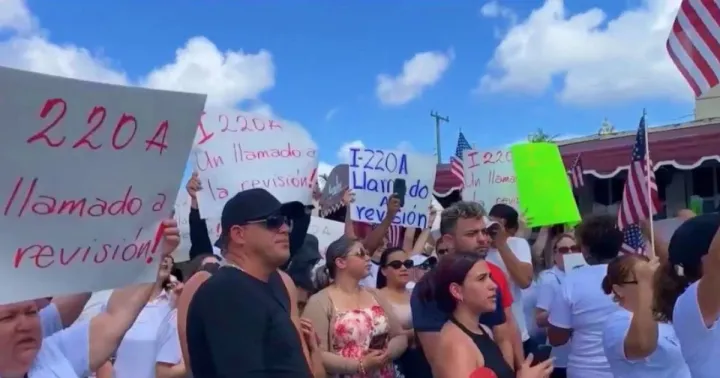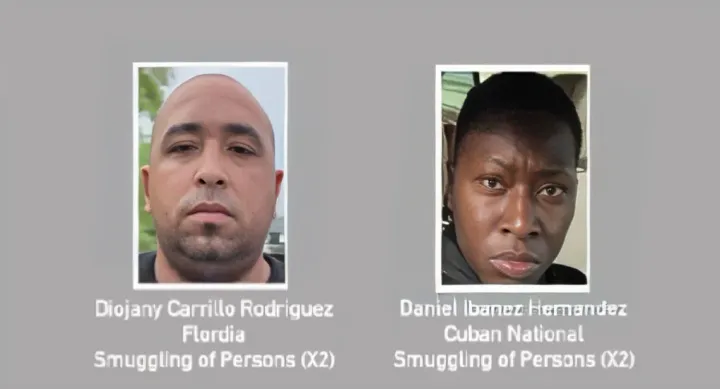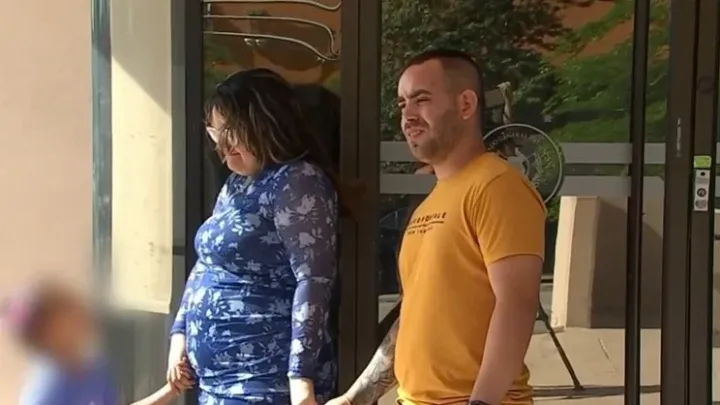Bill in the Senate could resolve residency in the US for Cubans with I-220A
The proposed special rule is not retroactive, but it generates expectation for those who are already in that migratory limbo.

The notable bipartisan bill agreed upon in the United States Senate between Democrats and Republicans concerning border security could resolve permanent residency for Cubans who cross the U.S. border and are granted an I-220A which currently is not considered a parole in view of the Cuban Adjustment Act.
According to an extensive report published in El Nuevo Herald, the legislative initiative proposes that Cubans released under new border processing rules could obtain a green card without the need of having been “inspected and admitted” formally or having received a parole.
In such a way, it would end the legal limbo in which thousands of Cuban migrants find themselves; those with the I-220A cannot receive government assistance, such as Medicaid, food stamps or financial aid, and are also not granted a work permit to create their own livelihood.
Although the proposed special rule is not retroactive, it generates expectations about its ability to resolve pending cases of Cubans who entered the U.S. and did not obtain parole.
In an interview for the said media outlet, Randy McGrorty, director of Catholic Legal Services, expressed that the bill demonstrated that Washington had listened to the demands of the Cuban exile community in Miami.
“It recognizes that Cubans fleeing Cuba are fleeing political oppression, not just economic turmoil, and that was the reason for the Cuban Adjustment Act sixty years ago. It recognizes that many Cubans are coming and they offer important skills, talents, and workers for our economy. And it recognizes that they have made a mess with the way they are releasing the Cubans,” said McGrorty.
Stricter, but also faster, asylum processes
Moreover, the bill seeks to strengthen the asylum system, toughening the interview process to determine if a foreigner really has a “credible fear” of returning to their place of origin. The aim is to raise the bar so that not everyone who presents themselves at the border can have almost expedited asylum.
With funding to designate more administrative staff, the aim is also to make asylum processes shorter. It is intended that those who are not accepted can be deported immediately.
On the other hand, the Senate bill would give the president the authority to restrict border processing in the face of a high migratory flow and would limit judicial appeals to exceptional situations.
Bad news for the aspirations of Cuban migrants
The bad news for the aspirations of Cuban migrants is that it seems unlikely that this Senate bill will have enough votes in the House of Representatives. Republican congressmen have said they will vote resoundingly no because it does not meet their demands.
Nevertheless, although this specific regulation may not become law, it is very likely that in the future the part concerning the treatment of Cubans with I-220A and their parole status could be included in future bills since both parties, Democratic and Republican, agree that the U.S. needs immigration reform.
For Wilfredo Allen, a prominent immigration attorney in Miami, the reform would be counterproductive. “Cubans might interpret it as an invitation to rush to the border or set out by boat…. To a certain extent, it is giving a privilege to a particular group, and it is a group that is arriving in historic numbers,” explained the Cuban American Allen to the newspaper El Nuevo Herald.




Comments ()